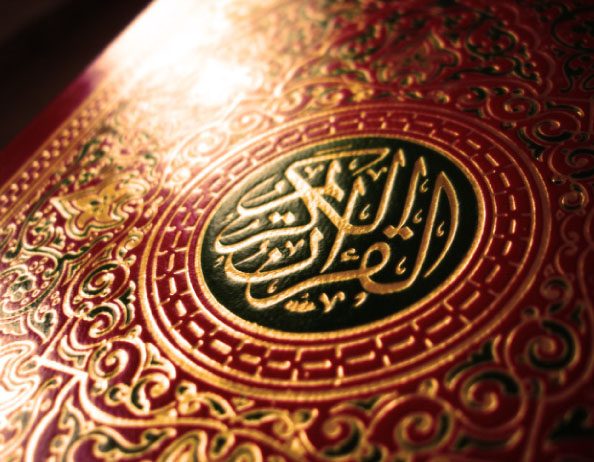
The Review of Religions is honoured to present the translation of Sūrah al-Nās, chapter 114 of the Holy Qur’an, from Hazrat Mirza Bashiruddin Mahmud Ahmad’s (ra) magnum opus, Al-Tafsīr Al-Kabīr.
In this instalment, the three attributes of God found in the opening verses are discussed. This edition also contains the lexical analysis of verses five to seven.
3) It has already been explained in the commentary of Sūrah al-Falaq that it teaches man – in addition to other matters – a supplication, that may Allah Almighty protect him from the evils related to the stages of his birth, his death and the period that elapses between them. In contrast, Sūrah al-Nās mentions three attributes of God Almighty: Rabb [Lord], Malik [King] and Ilāh [God] which correspond to the periods of time mentioned in Sūrah al-Falaq. Therefore, the attribute of Rabb relates to the time of birth. The attribute of Malik relates to the time of death, and the attribute of Ilāh relates to the period of one’s life. Therefore, أَعُوذُ بِرَبِّ الْفَلَقِ * مِنْ شَرِّ مَا خَلَق juxtaposes with أَعُوذُ بِرَبِّ النَّاسِ and وَمِنْ شَرِّ غَاسِقٍ إِذَا وَقَب juxtaposes with مَلِكِ النَّاسِ . And the words وَمِنْ شَرِّحَاسِدٍ إِذَا حَسَدَ * وَمِنْ شَرِّ النَّفَّاثَاتِ فِي الْعُقَد juxtapose with إِلَهِ النَّاسِ. In short, the three attributes that correspond to the three conditions [in Sūrah al-Falaq] are mentioned in Sūrah al-Nās.
With regard to his birth, man is connected to God Almighty’s attribute of Rubūbiyyah [divine providence], which is an attribute that continues to function because the process of human creation is continuously ongoing. Man eats in order to produce blood which is a means of sustaining his life. It is understood from this that [human] creation continues all the time; albeit man was born from a sperm at the beginning, the reality is that the process of creation always continues. Even doctors state that a man’s body undergoes a complete change within seven years, and the process of creation continues all the time. It is for this reason that man’s connection with the Rubūbiyyah of God Almighty always continues, and just as it was necessary for a period of man’s creation, the quality of Rubūbiyyah also continues [in his life]. That is why Allah Almighty instructs one to say, قُلْ أَعُوذُ بِرَبِّ النَّاسِ that that is: ‘Say, “I seek refuge with the Lord Whose Rubūbiyyah continues to manifest itself in all human beings and there are changes happening all the time in their bodies, some of which lead them to evil, and some to good. [I seek refuge] from this aspect of the attribute of change that incites me to commit evil, and may it instead lead me to good.”’
Furthermore: ‘I seek refuge with مَلِكِ النَّاسِ [King of mankind].’ The process of death also continues to manifest itself in man all the time: urine, excrement, sweat, nails and hair are parts of the body that pass. Man continues to be overcome by this temporary and partial death. Thus, the process of death also remains in operation. Therefore, Allah instructs us to seek refuge with مَلِكِ النَّاسِ. This means that we seek refuge with Him with respect to His attribute of reward and punishment, lest the time of failure comes upon us. Rather, may we continue to receive His favours and divine grace without any hindrance.
The third situation is when one is overcome by selfishness, and they no longer have pure intentions. Allah Almighty has therefore instructed us to recite إِلَهِ النَّاسِ [God of mankind], meaning one should seek refuge with Allah, Who is worshipped by all, lest their hearts develop defects. And even if they should develop defects, it will be antithetical to His glory to allow one to flee from the realm of His Ulūhiyyah [divine control]. Therefore, I beseech You in the name of Your Ulūhiyyah, ‘O Lord! Do not cut ties with me; but rather, maintain this bond forever.’
In the words قُلْ أَعُوذُ بِرَبِّ النَّاسِ * مَلِكِ النَّاسِ * إِلَهِ النَّاسِ a prayer is taught to safeguard one against these three states.
…………………………………………………………………………………
مِنْ شَرِّ الْوَسْوَاسِ الْخَنَّاسِ *
الَّذِي يُوَسْوِسُ فِي صُدُورِ النَّاسِ *
مِنَ الجِنَّةِ وَالنَّاسِ*
(I seek His protection from) the mischief of (every) evil whisperer that (plants the seed of doubt) and moves away,
(And) the one that creates doubts in the hearts of men,
Whether the mischief maker is among those who are hidden from sight or from among the common people. (3)
…………………………………………………………………………………
Lexical Analysis (3):
الوَسْواسُ is a noun derived from وَسْوَسَ , as in وَسَوَسَ إِلَيْهِ الشَّيْطَانُ which alludes to the idea of حَدَّثَهُ مَا لَا نَفْعَ فِيْهِ وَلَا خَيْرَ i.e., he was being told something that has no use or benefit. Thus, the word الوَسْوَاسُ alludes to something that is useless and unbeneficial. Moreover, it refers to الشَّيْطَانُ i.e. Satan. It also refers to هَمْسُ الصَّائِدِ وَالْكِلَابِ meaning when a hunter sets out to hunt, he does so without making loud noises; rather, the noise he makes is very quiet. Similarly, الوَسْواسُ refers to this sound and the one made by a dog. الوَسْوَاسُ also signifies مَرَضٌ يَحْدُثُ مِنْ غَلَبَةِ السَّوْدَاءِ وَيَخْتَلِطُ مَعَهُ الذِّهْنُ – a disease caused by an excess of black bile resulting in suspicious and obsessive thoughts arising in one’s mind. Furthermore, the expression وَيُقَالُ لِمَا يَخْطُرُ بَالْقَلْبِ مِنْ شَرٍّ وَّلِمَا لَا خَيْرَ فِيْهِ وَسْوَاسٌ refers to the evil thoughts that arise in the heart which are bereft of anything good; such thoughts are also referred to as وَسْوَاسٌ . (Al-Aqrab)
The word الْخَنَّاسُ is the hyperbolic form that is derived from the root خَنَسَ. The words خَنَسَ عَنْهُ denote رَجَعَ وَتَنَحَّى i.e., he came back from such and such place, and separated himself. Further, خَنَسَ means تَأَخَّرَ i.e., he withdrew and إِنْقَبَضَ i.e., he felt unease in his heart due to something. When used with reference to dates, the expression: خَنَسَ النَّخْلُ signifies تَأَخَّرَتْ عَنْ قُبُوْلِ التَّلْقِيْحِ فَلَمْ يُؤَثِّرْ فِيْهَا وَلَمْ تَحْمِلْ فِيْ تِلْكَ السَّنَةِ i.e., that the date palm could not be pollinated from the male trees resulting in no fruit being produced. خَنَسَ الشَّيْءُ عَنْكَ implies سَتَرَهُ as in, he hid something. And when one says وخَنَسَ بَيْنَ أَصْحَابِهِ it signifies إِسْتَخْفَى i.e., he hid among his friends. خَنَسَ بِفُلَانٍ غَابَ بِهِ means that he took so and so and disappeared.خَنَسَ الْقَوْلَ suggests the sense that أَسَاءَهُ i.e., he was offended by the speech. خَنَسَ إِبْهَامَهُ means قَبَضَهَا i.e. he clenched something. (Al-Aqrab)
Thus, الخَنَّاسُ means:
1. One who remains very isolated and secluded.
2. One who withdraws or retreats a lot.
3. One who completely rejects the influence of others.
4. One who hides and conceals things a great deal.
5. One who hides among his friends.
A group or community of Jinn is referred to in Arabic as Jinnah. The word الِجنُّ is used in contrast to the word الإِنْسُ. The word الِجنُّ is derived from the root word جَنَّ meaning to stay concealed. Thus, Janīn refers to a foetus which is concealed in the womb, and Janān refers to the heart which is concealed in the chest. Therefore, Jinn refers to a hidden form of creation; in fact all invisible beings are called Jinn in Arabic. (Al-Aqrab). In light of this, the word Jinn is used with reference to the elite who stay inside their homes and cannot be easily accessed.
Serialisation of Sūrah al-Nās will continue in the next edition.



Add Comment